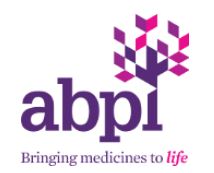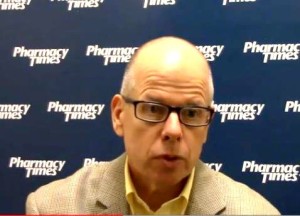- Reno’s hospitals growing with community (nnbw.com)
Reno’s two largest hospitals are gearing up to meet the medical needs of an expected population surge. In September, Renown announced a nearly $64 million investment that includes state-of-the-art technology, enlarging its Institute for Cancer building, creating an intermediate level of care between emergency medicine and hospital admission, and exploring the construction of a completely new medical center. Saint Mary’s Medical Group has invested $50 million in the past 18 months on new facilities and equipment, including the recently expanded medical clinic in northwest Reno, which opened Nov. 1. It has additional clinics and specialty facilities opening in other areas of the…(sub. req.)
- Precision Medicine Is A Needed Goal That Will Benefit Cancer Patients (forbes.com)
Today an oncologist-policy-maker-and-medical-ethicist reminds us that, in effect, we’re all paying for the sky-high price of new drugs. Which begs the question, if patients – or society – can’t afford the cancer treatments we’ve already got, why search for new ones?...bottom line: Precision medicine will help cancer patients. Already it’s a practice-changer, an oncology life-saver. So far, precision medicine has advanced care, and improved survival…it will take time, years, for physicians (and machines) to learn how best to give precise, targeted cancer treatments in combinations at the least toxic, optimized and effective doses for each patient. Doctors haven’t yet invented most of the “recipes” for good-quality PM, and are still searching for better ingredients (drugs)…Precision Medicine will emerge as a positive industry encompassing science, informatics and health care delivery. It makes no sense to keep science – or precision – out of clinics. Rather, science will, or should, become increasingly relevant to clinical practice…
- FDA sends warning letter to DNA4Life over consumer gene tests (reuters.com)Direct-to-consumer company tests FDA's resolve on gene testing (reuters.com)
Food and Drug Administration sent a warning letter to…gene testing company DNA4Life over its sale of an unapproved direct-to-consumer gene test to predict drug response…the agency said it was unable to identify any FDA clearance for the company's test. The letter follows 23andMe's limited relaunch last month of a series of direct-to-consumer tests after the agency ordered the tests off the market...
- Researchers May Soon Predict Drug Side Effects on Different Patients (specialtypharmacytimes.com)
Researchers seek to determine which side effects will be experienced by different patient groups…the most difficult hurdles for patients… to overcome are the debilitating side effects that accompany some treatments…To address this…investigators…constructed a proof of concept predictive model that may be able to forecast side effects different patients are likely to experience…We're not just interested in predicting the efficacy of a drug, but its side effects as well…Side effects are very personalized. Two different people can take the same drug, but one person might experience side effects while the other doesn't...This study is a step forward in demonstrating that patients could be precisely treated based on their genetic makeup…
- Drug industry bemoans Britain’s lack of science skills (reuters.com)Bridging the skills gap in the biopharmaceutical industry (abpi.org.uk)
British pharmaceutical and biotechnology companies face a major skills shortage which threatens future investment and the long-term success of the life sciences sector, according to a new industry report…Association of the British Pharmaceutical Industry said…that firms could increasingly seek workers abroad due to low numbers of good quality candidates, particularly those with appropriate biology and maths skills…The report follows a warning this week from lawmakers on the House of Commons science and technology committee that Britain's position as a "science superpower" would be jeopardized if government spending on science was not protected.
- Boston Children’s, IBM Watson take on rare diseases (healthcareitnews.com)
‘Watson can help us ensure we’ve left no stone unturned in our search to diagnose and cure these rare diseases.’…IBM Watson and Boston Children's Hospital are taking on rare children's diseases that are hard to diagnose and treat. First up is a rare form of kidney disease…Their first project will focus on kidney disease. Watson will analyze the massive volumes of scientific literature and clinical databases on the Watson Health Cloud to match genetic mutations to diseases and help uncover insights that could help clinicians identify treatment options…IBM has been developing Watson's ability to analyze genomic data in collaboration with leading cancer centers around the world. The new project with Boston Children's represents the first time this technology will be applied to help clinicians efficiently identify possible options for rare disease diagnosis and treatment.
- Researchers want to turn acid-loving microbes into safe drug-carriers (worldpharmanews.com)
Usually the microbe S. islandicus (Sulfolobus islandicus) is found in hot and acidic volcanic springs, but now the microbe has also found its way to the labs…researchers have for the first time showed that the exotic microbe is capable of delivering drugs to the human body…"One of the major challenges in pharmacy is to find ways to carry and protect drugs on their passage through the stomach. Many drugs may be absorbed through the intestines, so it would be a great help to be able to transport drugs safely through the stomach to the intestines", explains Sara Munk Jensen…Jensen and her colleagues…have managed to use S. islandicus to construct a nano-capsule (liposomes) that can transport drugs safely through the stomach.
- Want to win on pricing? Take a closer look at the numbers (fiercepharmamarketing.com)
Controversy surrounding drug pricing has reached an all-time high…So what's a drugmaker to do? Take a hard look at the data…Higher prices often attract lower-cost competitors and eliminate the short-term price increase benefit…public backlash to price hikes can trigger executive firings and other actions that impact the market…"While price hikes often represent both the recouping of historical investments and funding investments in new research to develop better treatments, companies should not descend into opportunistic 'price gouging,"…Leveraging pricing data can make a big difference in helping drugmakers stay abreast of the competition, especially for companies with off-patent products…Companies can use pricing data to gauge threats from generics or biosimilars, and identify trends in therapeutic areas or even specific indications. They can borrow from rivals' price-negotiation strategies to make the best case for their own meds. "If companies are able to actively and effectively analyze the trends and see how the market reacts, they'll be in a lot better position moving forward,"…
- Current and Future Estimates of E-Prescribing Use (pharmacytimes.com)
Ken Whittemore Jr, Surescript's senior vice president of professional and regulatory affairs, shares information on the current and future estimates of e-prescribing use.
- Direct-to-consumer company tests FDA’s resolve on gene testing (reuters.com)
Just as 23andMe has made peace with the...Food and Drug Administration, another direct-to-consumer genetics company is testing the regulatory waters with the launch of a $249 DNA test designed to predict drug response…The test, from tiny startup DNA4Life...comes in the wake of 23andMe's two-year tussle with the FDA over its direct-to-consumer personal DNA testing service, which the FDA ordered off the market in 2013…But the agency has yet to approve direct-to-consumer tests for pharmacogenetics, a field experts believe could be much riskier in the hands of consumers, who might use the information to make decisions about the drugs they are taking…"We would be delighted to have a conversation with the FDA," but added that it is not under the agency's purview. "Of course, the government can do what it likes."…The problem…is that patients, and even doctors, struggle to understand what to do with the results.






